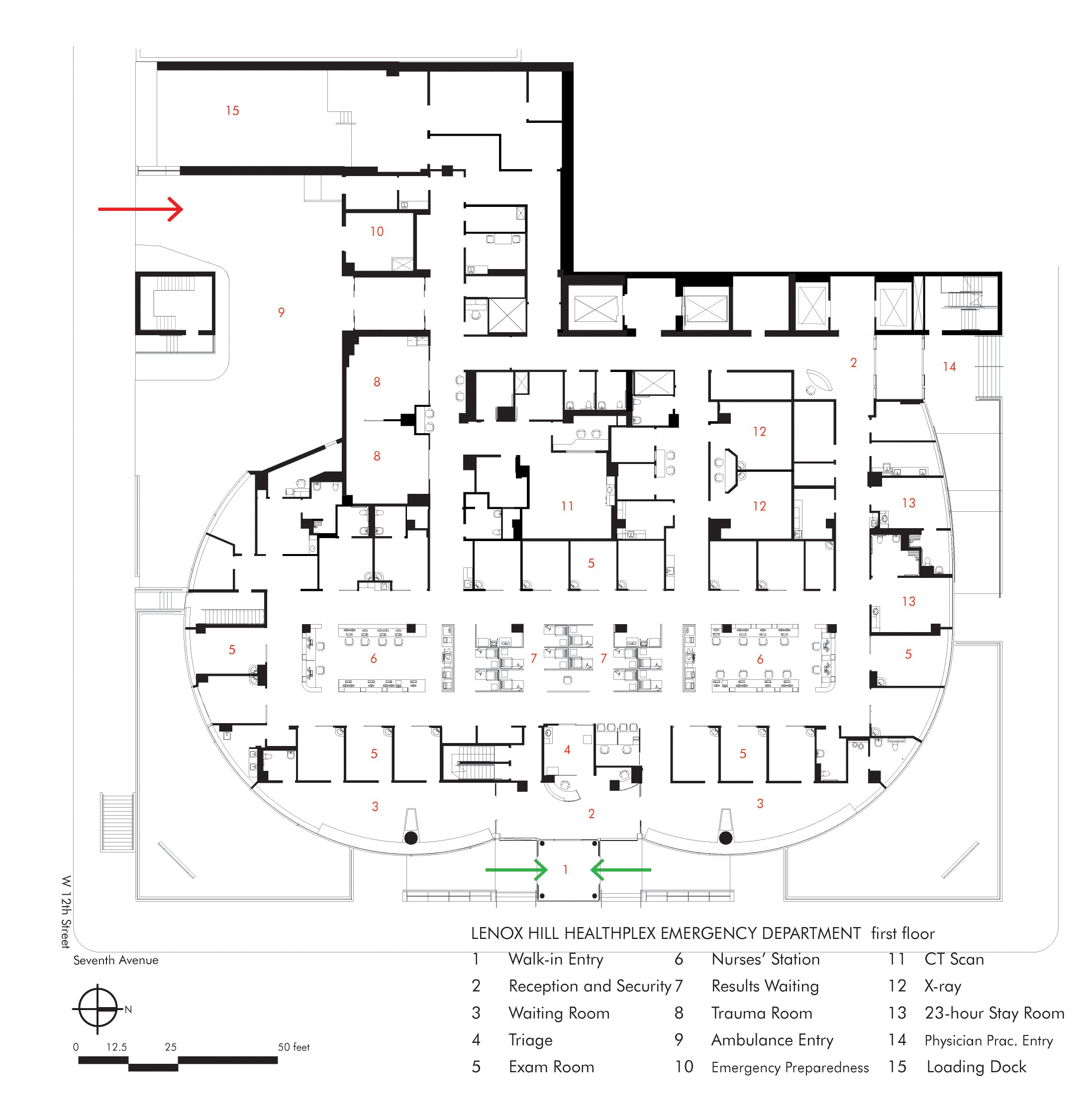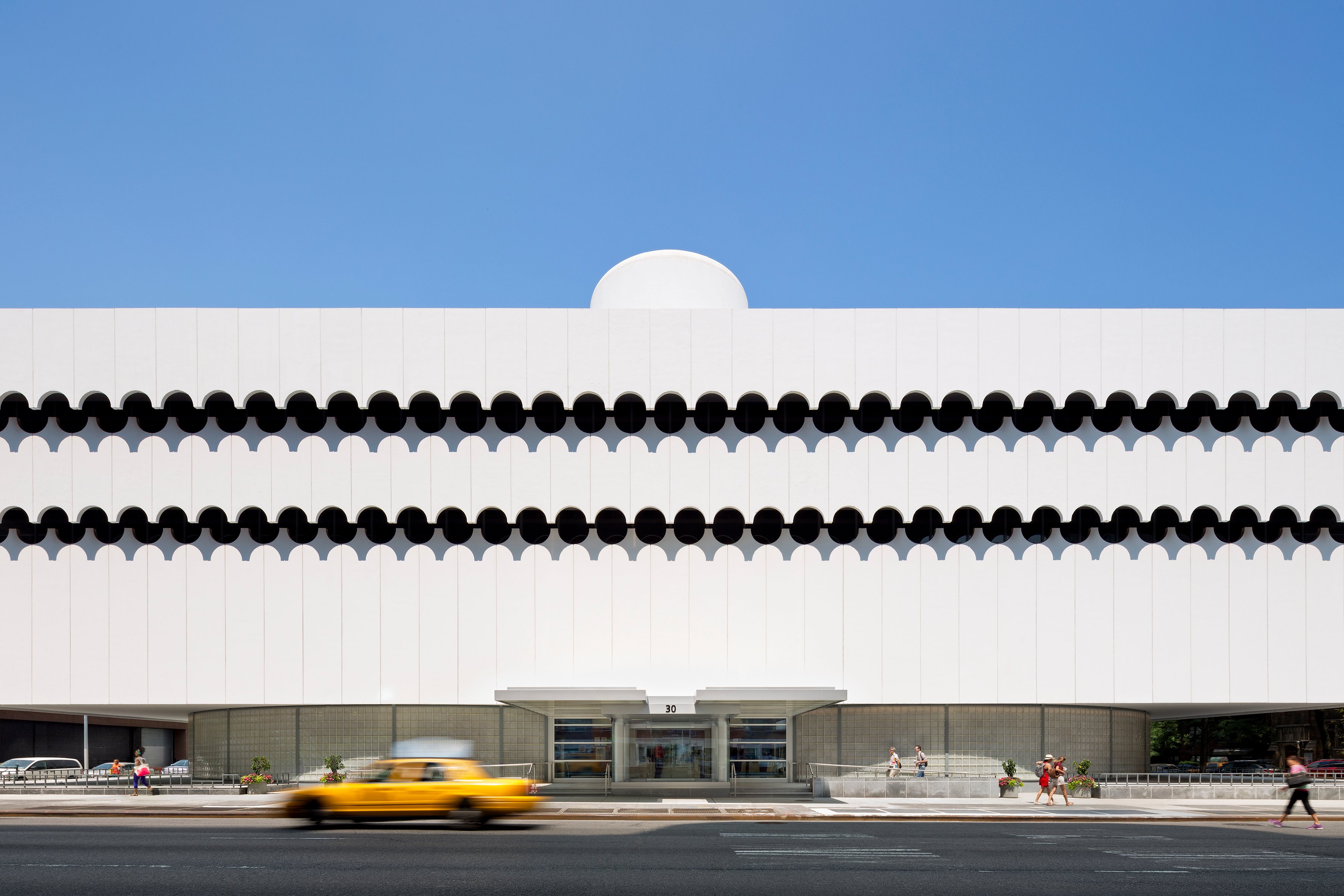ACEP ID:
- My Account
- My CME
- Sign Out
ACEP ID:
New York, New York
Perkins Eastman
New York, New York
Jeffrey Brand, AIA, Principal, Executive Director, and National Healthcare Practice Area Leader
Opened July 2014
Key Words
Freestanding advantage
Freestanding emergency department
Historic preservation
Operational efficiency
Patient/staff satisfaction
Problem/Situation
In 2010, the architect was commissioned to transform a building in New York City’s landmarked Greenwich Village neighborhood into a comprehensive community care center. The original building was a distinctive yet deteriorating midcentury modern built in 1964 for the National Maritime Union. It was poorly repurposed in subsequent years to a warren of office cubicles for a different health care entity.
Solution
The design team’s adaptive reuse and sensitive restoration of a historically significant building includes a high-tech 24/7 freestanding emergency department—the first of its kind in Manhattan—that recalls the building’s original design vision through interior design. It was completed in 2014. The major planning challenge revolved around fitting the orthogonal plan typical to health care programs into the existing circular footprint.
In addition, there were significant structural and mechanical system challenges. To accommodate off-street ambulance unloading and parking, portions of the exterior wall had to be removed and the cast-in-place shear walls that enclosed the building’s western core were cut and reframed with steel. This significant structural alteration required close coordination with NYS Historic Preservation Office (SHPO) and NYC Landmarks Preservation Commission.
Meanwhile, the design team worked closely with NYC Landmarks to minimize the visual impact of the necessary rooftop mechanical equipment through placement and screening. To thread the multitude of ducts throughout the building, the design team repurposed the original circular core for vertical distribution.
The adaptive reuse and restoration required significant community outreach and approvals with multiple regulatory agencies, including with the aforementioned NYC Landmarks and SHPO and the NYC Department of Transportation, as the structure had become magnetized due to vibrations from the subway underneath.
The architect was able to incorporate emerging health care planning and design trends into this quirky space to result in a soothing and extremely efficient freestanding emergency department that is now considered a new benchmark for others in the North Shore-LIJ Health System. This project has returned a high caliber of health care to the Greenwich Village community.
Lessons Learned
Editorial Commentary
This freestanding emergency department is affiliated with a parent hospital. It has clear, unified split-flow components for two patient streams: horizontal main emergency department and vertical super track as well as results waiting. Patient treatment areas are universal in size and are integrated with the vertical patients to assist in efficient staffing and patient flow. The unit is designed as a linear combined emergency department. This project is also significant because it was required to maintain sensitivity to the historical structure while providing for a very large central space for staff to work in as opposed to low ceilings in most emergency departments.

Floor plan indicating ambulance (red) and walk-in (green) entries, Lenox Health Greenwich Village, Freestanding Emergency Department.

Midcentury modern design, former National Maritime Union. Copyright Chris Cooper.